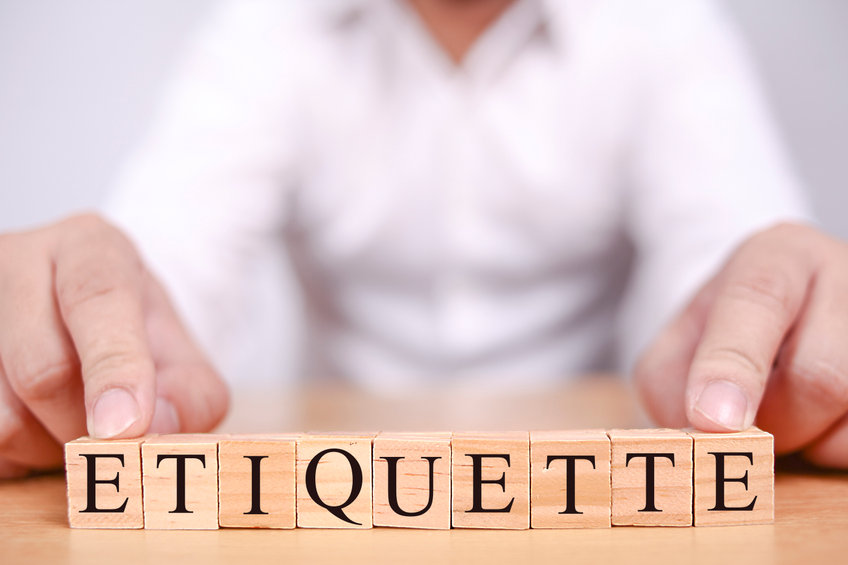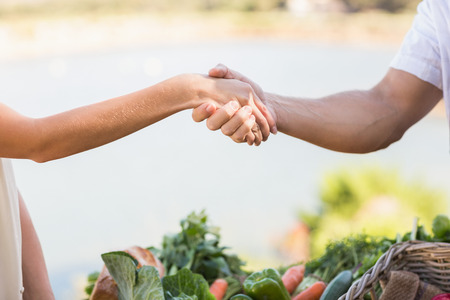A Review of Current
Etiquette Best Practices

The subject of current etiquette best practices is fresh in mind. Having just returned from my first in-person conference attended since early in 2020, I observed what seemed obvious: that most of us are in a period of Cautious Re-start. Do we shake hands, wear masks, socially distance, inquire if someone is vaccinated?
Many of us found ourselves hesitant during interactions, as internally we were conducting our own Q&A's to determine if we were doing the right thing as we met up and greeted one another. Isolation mode, the prevalent mode of politeness during the pandemic, had left its marks. We want ourselves and others to feel safe, and we aren't sure what it looks like to behave recognizably respectful.
Take Charge of Your Etiquette Best Practices
We are in charge of our own etiquette best practices. You are not compelled to perform – if you or someone else offers a hand to shake, the other person may or may not reply in kind. We should be careful how we read others' behavior.
At my most recent conference event, one person announced as she entered our circle that she was vaccinated but was still not giving hugs or handshakes and that she was glad to see us all. Another person replied, “Ditto.” Clear communication of boundary expectations seemed to add comfort, if not humor, to the conversation.
Requirements exist in some stores, offices and public places and should be observed, but we are on our own again as we interact with others socially. Testing our comfort levels for interactions such as shaking hands, hugging, walking through a crowded room or place of business, is bound to keep social hesitancy in the room for while.
Norms will continue to adapt and, social creatures that we are, we’re good at moving with the change. Being mindfully etiquette-ful gives us the personal comfort of knowing what we should expect from ourselves in social situations. We’re forming and re-forming guidelines as we go along, and we expect and hope that others will do the same.
Vaccinations as a Conversation Topic
Having a good conversation topic list in mind, tucked in your mental or real pocket ahead of time, is a great practice, especially when the subject of vaccinations is mentioned.
If the subject of vaccines is important to you – and this makes sense especially for those with compromised immunity – it is appropriate to inquire about the status of people with whom you will be spending time in close proximity and to decide on how you wish to proceed.
During my recent conference outing and associated cocktail gatherings, the vaccination subject seemed to come up almost as a feeler to determine where and how long the conversation would last. Bottom line, if conversations occur, the polite thing to do is to let go of stating judgment about others. A good conversation should begin and end on a positive note.
A New Normal
The operating assumption for mask-wearing is that when people have them on they are more comfortable wearing one and want those around them to be at ease.
Handshakes are so engrained in our culture that it’s hard to imagine they won’t return in full at some point. However, the pandemic practice of not shaking hands has reinforced the idea that there are other forms of greetings. And we are all noticing how important good eye contact is as a part of our greetings.
Loosely holding assumptions rather than judgments allows everyone to go about their business at their own pace. The foundation of etiquette is being mindful of the needs of others and this will remain as a best practice of civility.














